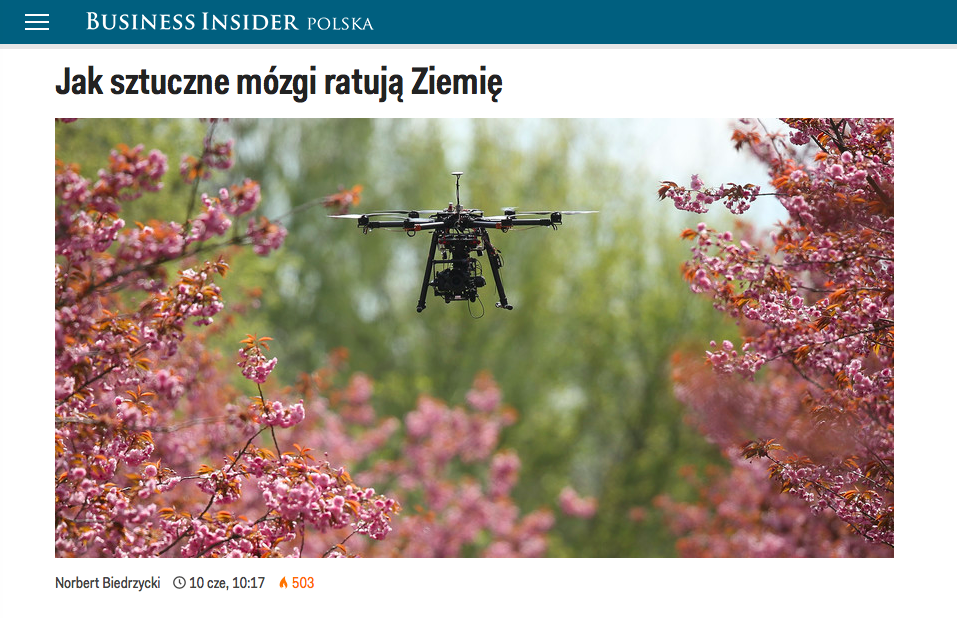My article in BUSINESS INSIDER published 11th of May 2017.
You don’t have to be an environmental activist to realize just how vulnerable the Earth’s ecosystem is. Can modern technology help us protect it? Can we employ artificial intelligence to save the environment globally? I have a few examples for you to demonstrate how a combination of technology and nature may produce benefits, particularly for the latter.
While the idea of harnessing solar energy or developing environmentally friendly cars is by no means new, one can now stretch it a whole lot further. Even to slowing down, if not preventing the extermination of rare animal species and monitoring forest degradation and air pollution.
The new-generation interactive tools that increasingly pervade our daily lives, such as cameras, sensors, drones, recording devices, satellites and electronic maps, work wonderfully in rough and extreme conditions. The kind of conditions encountered in wildernesses. Information technologies definitely make fascinating environmental projects easier, or even possible.
On rhinos and sensors
The creeping destruction of fauna can be attributed to a handful of causes. One of them is the cutting down of tropical forests: a violent intrusion into the natural habitats of many species. Another is massive, profit-driven poaching which adds to the destruction. Fortunately, there are also initiatives that help effectively monitor such devastation. Many of the environmentalists who engage in campaigns to save dying species go on to become efficient lobbyists and advocates in the world of politics and business. They make politicians and entrepreneurs increasingly aware of the need to invest in neglected parts of the world, and areas in which negative human impact is particularly compelling. One example I can quote is the Great Elephant Census project. For two years now, a co-founder of Microsoft and the founder of Vulcan Inc., Paul Allen, has conducted research in Africa using new technologies and, in particular, big data. Specifically, he keeps track of elephant headcounts in 18 countries. As it turns out, over the last seven years, the world’s elephant population has fallen by 30 percent. The main reason is increased demand for ivory among buyers in China. Highlighted by Allen, the alarming data has finally reached the Chinese authorities, which – in late 2016 – put in place restrictions on companies involved in the ivory trade…
Link to the full article (in Polish)
Related articles on my blog:
– Medicine of the future – computerized health enhancement
– According to our computers … You don’t exist
– What a machine will think when it looks us in the eye?
– Fall of the hierarchy. Who really rules in your company?
– Blockchain has a potential to upend the key pillars of our society







